E Mail Writing in English
E Mail Writing in English: Email is the most common form of business communication; so it’s important to get it right. Although emails usually aren’t as formal as letters, they still need to be professional to present a good image of you and your company.

How to write a formal email
Follow these five simple steps to make sure your English emails are perfectly professional.- Begin with a greeting
- Thank the recipient
- State your purpose
- Add your closing remarks
- End with a closing
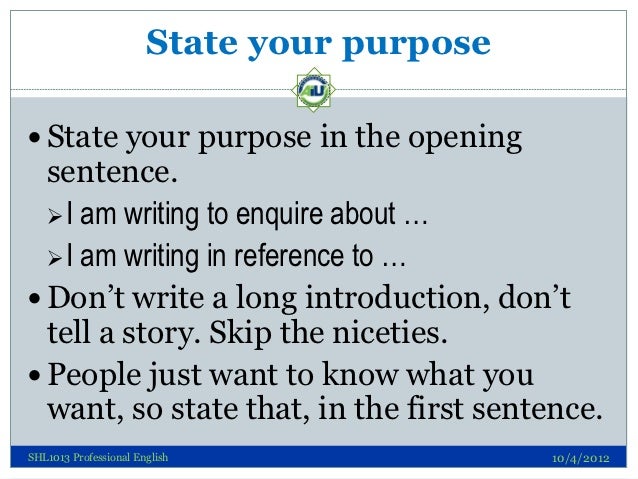

Begin with a greeting
Always open your email with a greeting, such as “Dear Lillian”. If your relationship with the reader is formal, use their family name (eg. “Dear Mrs. Price”). If the relationship is more casual, you can simply say, “Hi Kelly”. If you don’t know the name of the person you are writing to, use: “To whom it may concern” or “Dear Sir/Madam”. Subject Line
Subject Line
- Always have a subject line that summarises briefly and clearly the contents of the message (example: Re: Summary of Our Meeting with ABC Suppliers).
There are many variations of greetings that you can start your email with, but the most standard ones are:
Dear Firstname Lastname
Dear Mr./Ms. Lastname
Dear Mr./Ms. Firstname Lastname
Dear Dr. Lastname
To whom it may concern

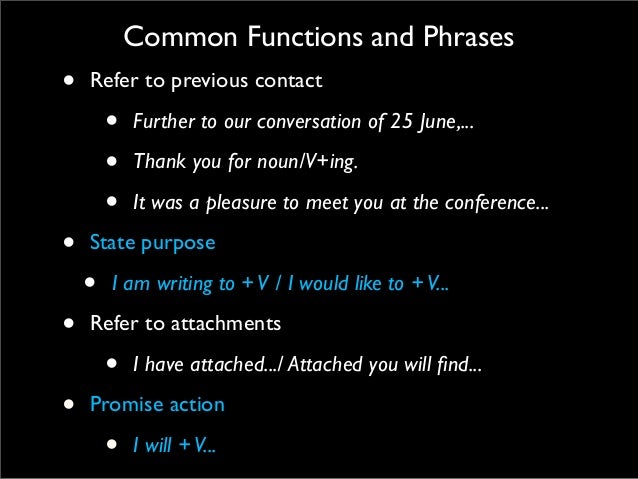
-
Think of who your reader is going to be
Is it a colleague, a client or your boss? Should the email be informal or formal? Most business emails these days have a neutral tone. Note the difference between Informal and Formal: Informal – Thanks for emailing me on 15th February Formal – Thank you for your email dated 15th February Informal – Sorry, I can’t make it. Formal – I am afraid I will not be able to attend Informal – Can you…? Formal – I was wondering if you could….?
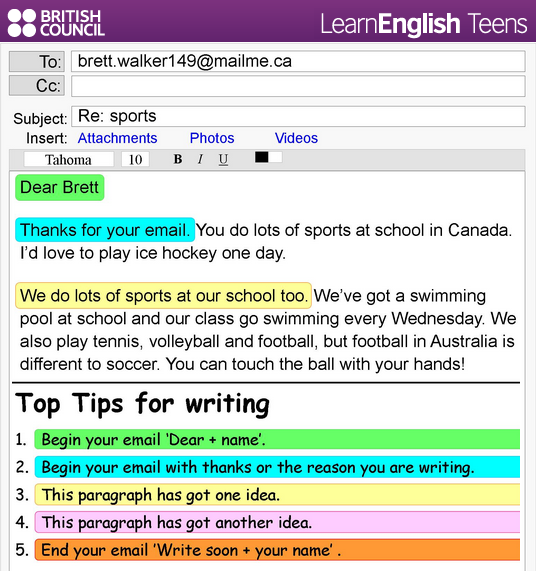
- Some emails to colleagues can be informal if you have a long working relationship and know them well. This is the style that is closest to speech, so there are often everyday words and conversational expressions that can be used. For instance, ‘Don’t forget’, ‘Catch you later’, ‘Cheers’. The reader may also accept or overlook minor grammatical errors in informal emails. However, if the email is going to a client or senior colleague, bad grammar and an over-friendly writing style will most probably not be acceptable. If you are replying to a client’s inquiry, you should begin with a line of thanks. For example, if someone has a question about your company, you can say, “Thank you for contacting ABC Company”. If someone has replied to one of your emails, be sure to say, “Thank you for your prompt reply” or “Thanks for getting back to me”. Thanking the reader puts him or her at ease, and it will make you appear more polite.
-
Think about how direct or indirect you want to be
In some cultures, it is common practice to be very direct in email correspondence. However, this can cause a problem if you’re writing to someone in another country and in a language that is not your mother tongue. They might find your directness rude and possibly offensive. Consider these: Direct – I need this in half an hour. Indirect and polite – Would it be possible to have this in half an hour? Direct – There will be a delay Indirect – I’m afraid there may be a slight delay. Direct – It’s a bad idea Indirect – To be honest, I’m not sure if that would be a good idea. By adjusting your tone, you are more likely to get a positive response from your reader.State your purpose
If you are starting the email communication, it may be impossible to include a line of thanks. Instead, begin by stating your purpose. For example, “I am writing to enquire about …” or “I am writing in reference to …”. Make your purpose clear early on in the email, and then move into the main text of your email. Remember, people want to read emails quickly, so keep your sentences short and clear. You’ll also need to pay careful attention to grammar, spelling and punctuation so that you present a professional image of yourself and your company. -
Add your closing remarks
Before you end your email, it’s polite to thank your reader one more time and add some polite closing remarks. You might start with “Thank you for your patience and cooperation” or “Thank you for your consideration” and then follow up with, “If you have any questions or concerns, don’t hesitate to let me know” and “I look forward to hearing from you”.
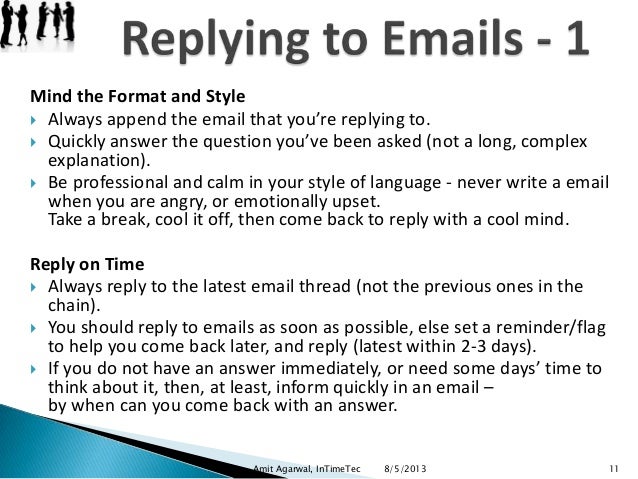
-
End with a closing
The last step is to include an appropriate closing with your name. “Best regards”, “Sincerely”, and “Thank you” are all professional. Avoid closings such as “Best wishes” or “Cheers” unless you are good friends with the reader. Finally, before you hit the send button, review and spell check your email one more time to make sure it’s truly perfect!
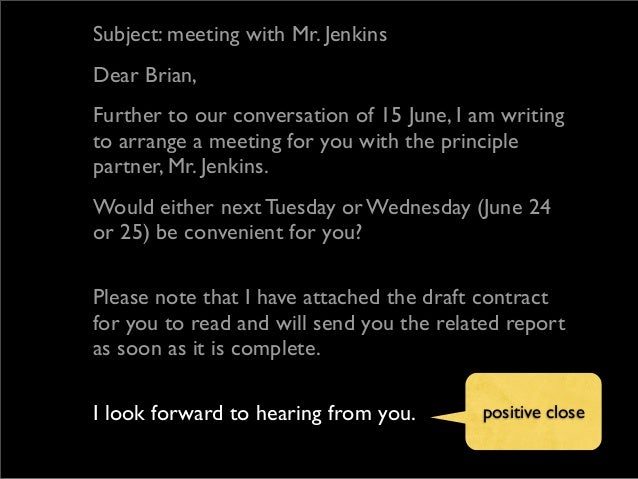

 ]]>
]]>
 Academic IELTS Writing Task 2 & Band 8.5 Discursive Essay
Many developing countries require aid from international organisations to develop. Many people think that this aid should be financial, while others think that practical aid and advice are more useful. Discuss both views and give your own opinion.
Sample Band 8.5
People have different views about the kind of support that wealthy nations should provide for poorer ones. Although some say that non-financial support is beneficial for poor countries, my own view is that international aid should be in the form of financial assistance.
There are several reasons to believe that practical assistance and advice are what developing countries need. Firstly, an effective education system is a key factor in the growth of a country, so advice on how to build such a system should be given to less wealthy countries. For example, since the [your country name] school curriculum focuses heavily on theories, students cannot apply what they learn into practice and come up with creative ideas, which is why the country fails to make technological and economic progress. Advice and instructions from developed countries are therefore expected to help [your country name] improve their education system. Secondly, foreign assistance can also be given in terms of providing human resources. By having an additional number of well-educated and knowledgeable individuals work in their nations, hopefully less developed countries can escape from poverty.
However, I believe that financial support would be more useful for poorer nations. One argument is that even valuable ideas for education reform may be irrelevant if a country is financially disadvantaged. In the aforementioned example about [your country name], while it seems beneficial to re-organise the education system, this cannot happen in the short runbecause there are a variety of costs associated with education reform, such as purchasing learning tools and training teachers. Furthermore, financial resources provided by rich countries may help poorer ones invest in medical and scientific research. If a sufficient amount of money is spent on these areas, technological advances are significantly more likely to be made, and such innovations can help improve the economic growth of a nation.
In conclusion, while some people argue that foreign aid given to poor countries should be non-financial, it seems to me that it is financial support that helps these nations escape from poverty.
Academic IELTS Writing Task 2 & Band 8.5 Discursive Essay
Many developing countries require aid from international organisations to develop. Many people think that this aid should be financial, while others think that practical aid and advice are more useful. Discuss both views and give your own opinion.
Sample Band 8.5
People have different views about the kind of support that wealthy nations should provide for poorer ones. Although some say that non-financial support is beneficial for poor countries, my own view is that international aid should be in the form of financial assistance.
There are several reasons to believe that practical assistance and advice are what developing countries need. Firstly, an effective education system is a key factor in the growth of a country, so advice on how to build such a system should be given to less wealthy countries. For example, since the [your country name] school curriculum focuses heavily on theories, students cannot apply what they learn into practice and come up with creative ideas, which is why the country fails to make technological and economic progress. Advice and instructions from developed countries are therefore expected to help [your country name] improve their education system. Secondly, foreign assistance can also be given in terms of providing human resources. By having an additional number of well-educated and knowledgeable individuals work in their nations, hopefully less developed countries can escape from poverty.
However, I believe that financial support would be more useful for poorer nations. One argument is that even valuable ideas for education reform may be irrelevant if a country is financially disadvantaged. In the aforementioned example about [your country name], while it seems beneficial to re-organise the education system, this cannot happen in the short runbecause there are a variety of costs associated with education reform, such as purchasing learning tools and training teachers. Furthermore, financial resources provided by rich countries may help poorer ones invest in medical and scientific research. If a sufficient amount of money is spent on these areas, technological advances are significantly more likely to be made, and such innovations can help improve the economic growth of a nation.
In conclusion, while some people argue that foreign aid given to poor countries should be non-financial, it seems to me that it is financial support that helps these nations escape from poverty.
 ]]>
]]> 






